Highland Ridge Hospital, in Salt Lake City, UT, helps adolescents, adults, and seniors who are struggling with painkiller addiction through an unmatched quality of care and support. Located in Salt Lake City, Utah, Highland Ridge is the leading provider of mental health treatment.
Learn About Painkiller Addiction
Learn more about painkiller abuse treatment at our hospital in Salt Lake City
Being addicted to prescription painkillers isn’t a moral failing or a character weakness— addiction is chronic medical condition that is caused by changes in the structure and function in the brain of susceptible people. If you have become dependent upon opioid narcotics, you may feel trapped in a cycle of relapse and remission. You may have tried to quit using before and been unable to stay clean. You may realize that you’re engaging in illegal behaviors, such as doctor shopping, just to keep your habit at bay. You may steal money from loved ones and forge prescriptions simply to keep the pills in your system. There is another way to live your life.
Highland Ridge Hospital has helped countless teens, men, and women who have struggled with addiction in the 25 years we’ve been working with addiction recovery. Our compassionate staff is driven by the desire to see each person who comes to us emerge and rejoin their community a healthy, happy, and sober person.
Helping a Loved One
Helping a loved one or family member get treatment for painkiller addiction
If you’ve been watching your loved one struggle mightily with a prescription painkiller habit, you probably feel powerless to help them. You may not know how to talk to them about their addiction without them lashing out in anger. You may fear that if you bring up the subject of treatment, they’ll walk out of your life forever. You know something has to change. It’s time for your loved one to seek help for his or her painkiller addiction. Here’s how to help your loved one get help:
Patience: Addiction didn’t happen overnight for your loved one and recovery won’t either. If your loved one is resistant to treatment, don’t be surprised. Just assure them that when they’re ready, you’ll be there to help guild them into treatment.
Listen: Addiction isn’t a choice— it’s a disease. Approach your loved one using “I feel” statements rather than the more accusatory “you” statements. Say, “I notice you’ve been taking a lot of your painkillers. Are you using more than was prescribed?” Listen without judgment and with an open mind.
Advocate: Call around to inpatient recovery centers that offer humane detox for prescription painkillers. See if you can arrange a tour of the rehab center with you and your loved one to ease any anxiety you may feel. Assure your loved one that you’ll be with them every step of the way.
Why Seek Inpatient Treatment
Why seek help for painkiller addiction
If you’ve been hooked on pain pills for a long time, you know the kind of effect they’re having on your health. You probably have seen your personal relationships fizzle and die as you became a slave to your addiction. You’ve probably developed a tolerance – you need more pills to get blissed out. You may have run out of prescribing physicians and have turned to the streets to get your fix of painkillers. You know that your addiction is slowly killing you but you don’t know how to get better.
An inpatient program for addiction recovery has proved to be one of the best ways to beat an addiction to painkillers. In an inpatient center, you’re removed from the stresses of everyday life and are able to focus on the one thing that matters – getting better. Your treatment team will work to safely detox you from the pills and help you learn new ways to cope with overwhelming emotions. You’ll learn the reasons behind your addiction and how to prevent a relapse.
Our Philosophy
Our philosophy & benefits of painkiller addiction treatment
Highland Ridge Hospital has been an addiction treatment leader in our community for 25 years. We aim to provide ethical, compassionate, and empirically-validated care to those who come to us struggling with chemical dependencies and other disorders. Our multidisciplinary treatment team of medical and mental healthcare professionals prides ourselves on being available for patients whenever they need a shoulder to lean on. We model our addiction treatment program after the 12-step model for addiction recovery and provide numerous therapeutic interventions to heal the mind, body, and spirit.
What We Offer
Painkiller abuse treatment options available at Highland Ridge Hospital
When you come to us for help battling your prescription painkiller addiction, you’ll first undergo a battery of tests and examinations to allow us to gain a full picture of the challenges you’re facing. Our medical evaluation will allow us to determine how dependent your body has become on narcotics and determine if you will need detox before entering the addiction recovery program. Our psychiatric evaluation will allow us to determine the root of the addiction as well as any co-occurring disorders you may have. We’ll take the results of these evaluations and work alongside you to create a plan of care that meets all of your needs.
Detox may be your first step in the therapeutic process, depending upon your level of addiction on narcotics and other drugs. In detox, we work to safely and effectively rid your body of all drugs and alcohol in a humane, compassionate environment. As you are detoxing, we’ll be preparing you for entry into our addiction program based around the telnets of the 12-step addiction recovery program.
Medication may be used during detox to help alleviate some of the symptoms you’re feeling and slowly tapered down as you learn to function without prescription painkillers. Other people may be placed on more long-term medication regimes to manage any co-occurring disorders. The usage of medication will be based upon the recommendations of the treatment team.
Individual therapy can be a great asset for many who are struggling with addiction as it allows you one-on-one time with a therapist to work through some of your emotional issues. You’ll have time to explore the ways in which addiction to prescription painkillers has impacted your life as well as techniques for continued sobriety.
Group therapy is the cornerstone of addiction recovery. Through groups, you’ll get to meet others who are struggling with other types of addiction so that you can each grow, learn, and heal. We offer A.A. and N.A. meetings as well as psychoeducational and process-based groups that serve to educate, empower, and reinforce your continued sobriety.
Family therapy is very important for recovering addicts as family bonds are often tested during the course of addiction. We’ll spend family sessions reconnecting you with your loved ones, allowing them to share the ways in which your addiction has impacted them as well as educating them about addiction and recovery. We’ll also provide your loved ones with community resources for families of addicts, such as Al-Anon and Nar-Anon meetings.
In addition to our traditional therapeutic approaches, we’re proud to offer a variety of experiential methods that help us to heal the whole you. These methods may include the following:
- Art therapy
- Pet therapy
- Recreation therapy
- Yoga
- Music
- Leisure time
- Meditation
- Craft time
- Movie nights
- Wii games
- Gym & exercise time
- Puzzles, cards, and board games
Continuing Care
Continuing care at Highland Ridge
As your time for discharge approaches, you’ll work with our discharge planner to determine the next best steps for your continued recovery. You may choose to remain in a more structured environment and opt to join a residential treatment program to further your recovery. Other people may decide to step down into a structured partial hospitalization or intensive outpatient program to focus on recovery during the day and slowly integrate back into the community in the evenings. Still others may feel they’ve made enough progress with us to discharge home with referrals to traditional outpatient therapy and community support groups such as N.A. and A.A.








